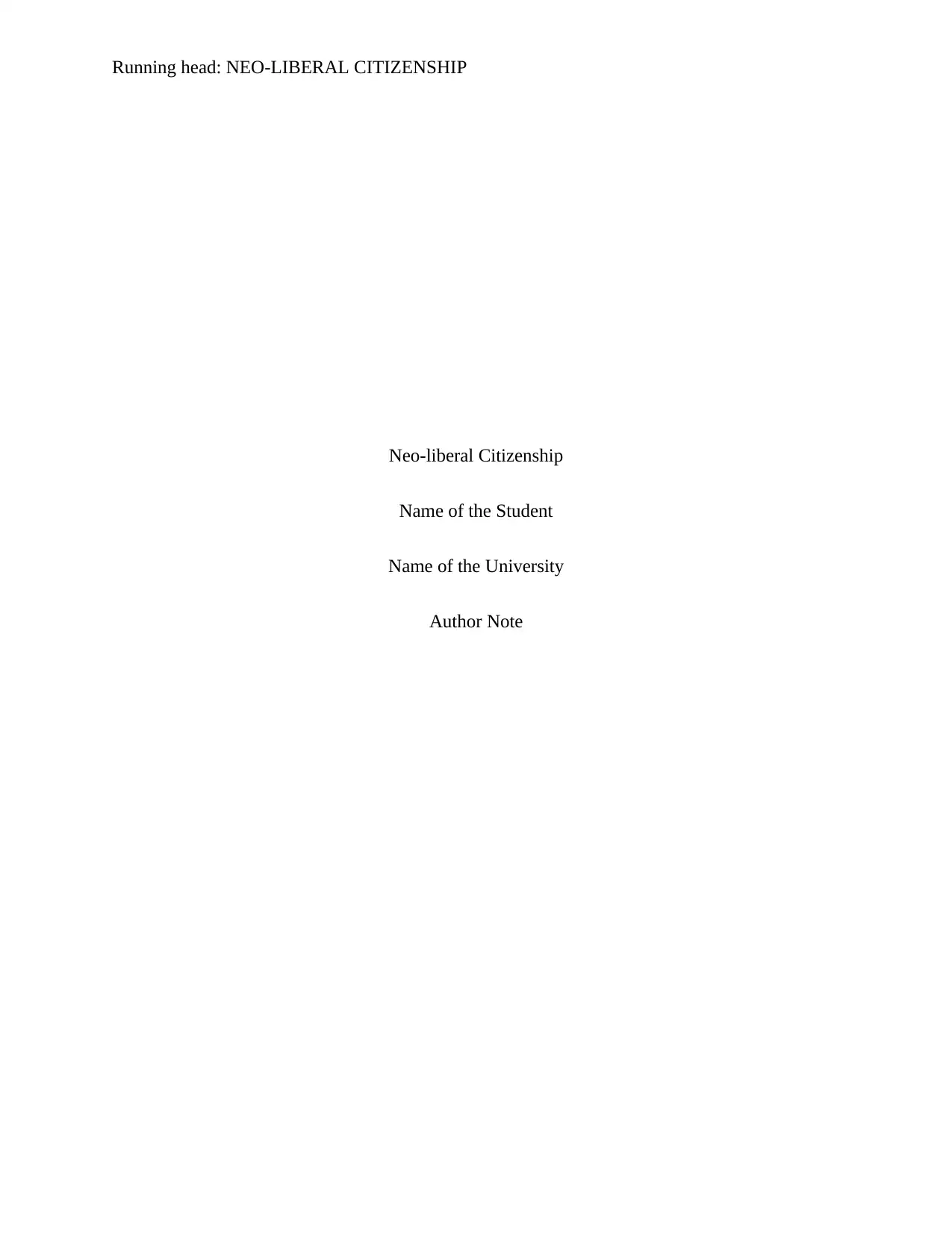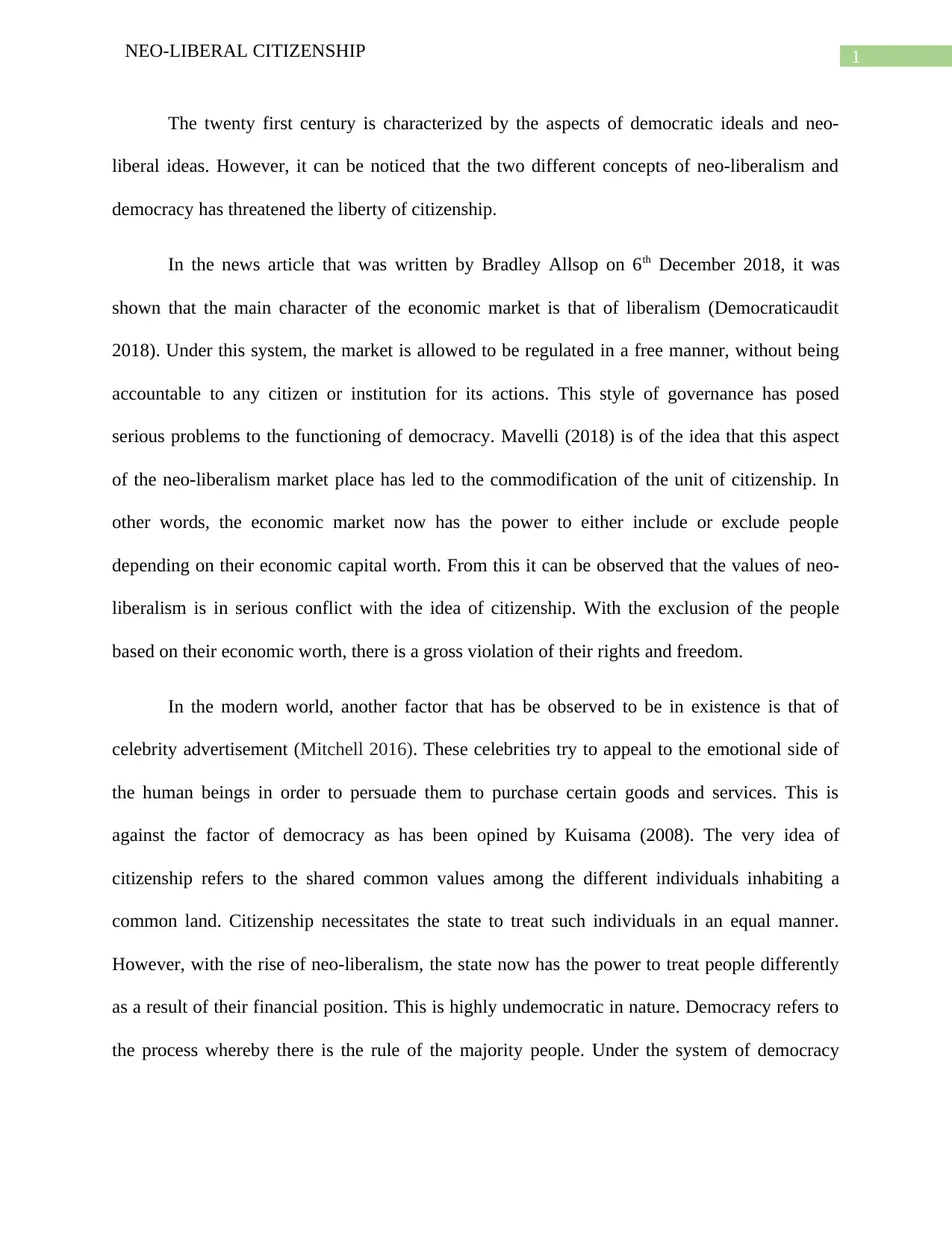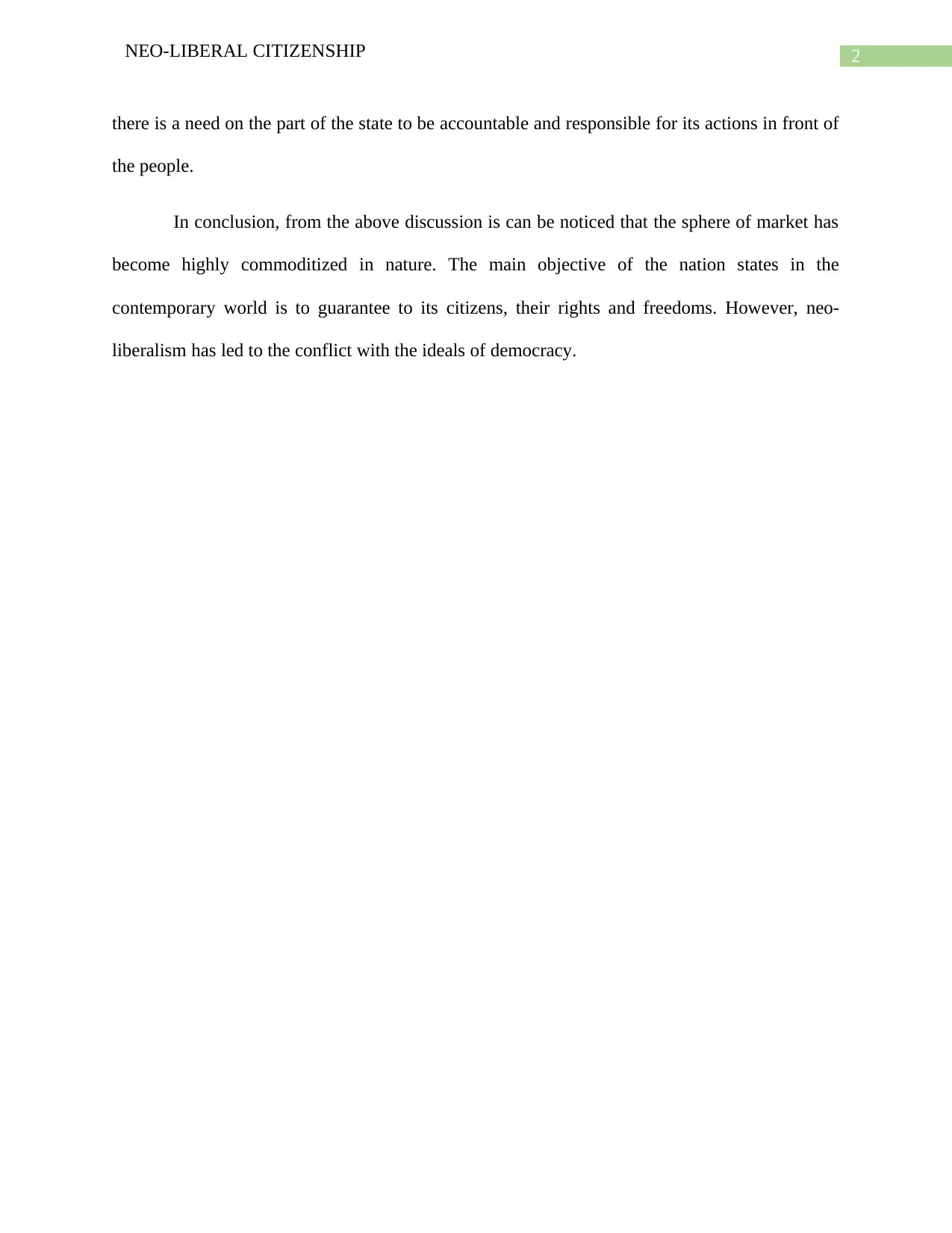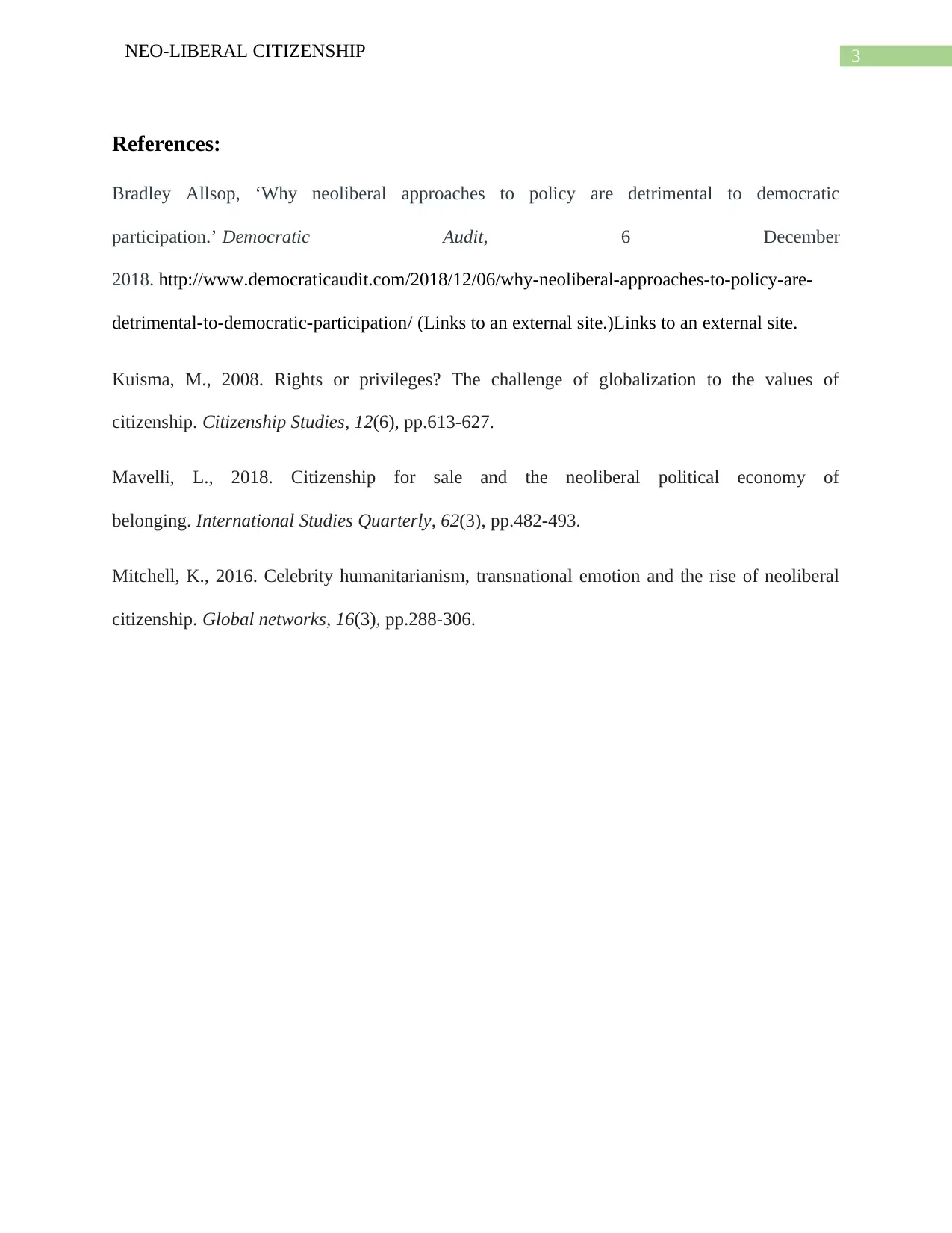Analyzing Neo-liberal Citizenship: A Critical Perspective
VerifiedAdded on 2022/11/15
|4
|596
|441
Homework Assignment
AI Summary
This assignment examines the concept of neo-liberal citizenship in the context of contemporary society. It explores the tension between democratic ideals and neo-liberal economic principles, arguing that the latter poses a significant threat to the rights and freedoms of citizens. The analysis draws upon provided readings, including articles by Bradley Allsop, Mikko Kuisma, Katharyne Mitchell, and Luca Mavelli, to illustrate how market forces, celebrity influence, and the commodification of citizenship undermine democratic participation and equality. The assignment highlights the ways in which neo-liberalism allows for differential treatment based on financial status, thereby violating the core tenets of citizenship and the rule of the majority. The conclusion underscores the increasing commodification of the market sphere and its conflict with the fundamental rights and freedoms that nation-states are expected to guarantee their citizens.
1 out of 4








![[object Object]](/_next/static/media/star-bottom.7253800d.svg)